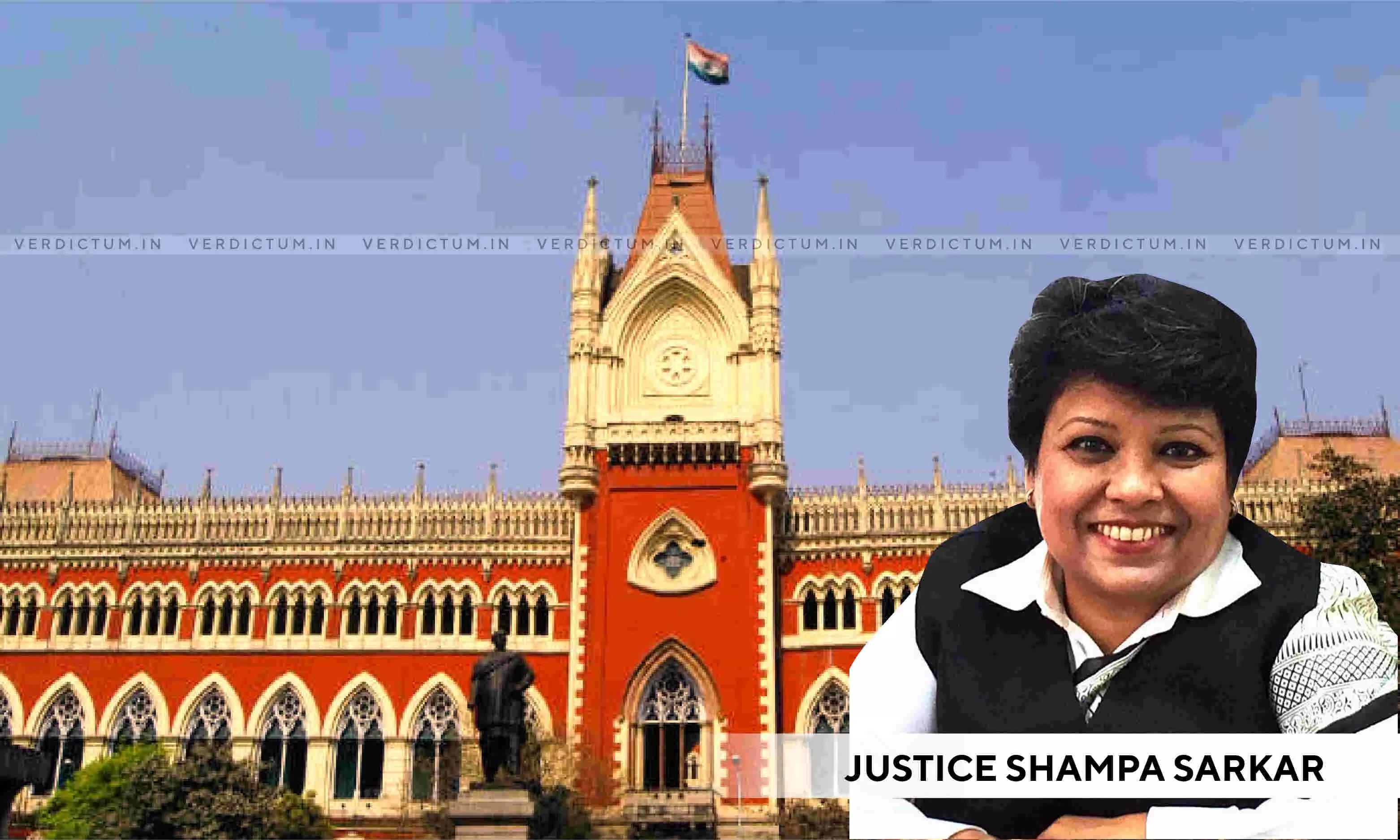
Calcutta High Court: Referral Court Can Reject Claims Barred By Limitation In Section 11 Arbitration Applications
 |
|The Calcutta High Court was considering an Application for appointment of Arbitrator under Section 11(6) of the Arbitration And Conciliation Act, 1996.
The Calcutta High Court has held that the referral Court can reject claims barred by limitation in an application filed under Section 11(6) of the Arbitration and Conciliation Act, 1996.
The Court was considering an Application for appointment of Arbitrator for adjudication of the disputes arising out of a notarized agreement for sale which was entered into between the parties.
The Single Bench of Justice Shampa Sarkar held, "Thus, from an exhaustive analysis of the position of law on the issues, we are of the view that while considering the issue of limitation in relation to a petition under Section 11(6) of the Act, 1996, the courts should satisfy themselves on two aspects by employing a two-pronged test - first, whether the petition under Section 11(6) of the Act, 1996 is barred by limitation; and secondly, whether the claims sought to be arbitrated are ex-facie dead claims and are thus barred by limitation on the date of commencement of arbitration proceedings. If either of these issues are answered against the party seeking referral of disputes to arbitration, the court may refuse to appoint an arbitral tribunal.”
The Applicant was represented by Advocate Partha Chakraborty while the Respondent was represented by Advocate Rishabh Dutta Paul.
Facts of the Case
Certain terms and conditions were elaborated in the Sale Agreement between the Parties. One of the Clauses of the said Agreement deals with settlement of disputes and provides that all disputes and differences between the Parties shall be settled amicably, failing which the matter shall be referred to Arbitration, in accordance with the Arbitration and Conciliation Act, 1996.
It was the contention of the Counsel for the Petitioner that although an amount of Rs.16 lakhs had been paid, the Vendor/ Respondent did not fulfill and/ or perform the obligations contained in the said agreement. The Petitioner submitted that amicable settlement was attempted, but had failed. The Petitioner, in 2022, had filed a Police complaint stating that Paul Constructions and its men and agents were outsiders and did not have any right to obstruct the Petitioner’s ingress and egress to the property. Further the Complaint was that the men and agents of Paul Construction were threatening the Petitioner with dire consequences. After two years therefrom, the Petitioner filed an Application under section 9 of the Arbitration and Conciliation Act, 1996 in the Court of the District Judge. The Respondent was restrained from alienating the scheduled property to any other person and the parties were directed to maintain status quo. Thereafter, the Petitioner invoked arbitration in December 2024.
Reasoning By Court
The Court noted that the Petitioner was seeking specific performance of an agreement but there was nothing on record which would show how and when the Petitioner had paid the alleged amount of ₹16,00,000/-.
Noting that it is well settled that the period of limitation to invoke arbitration is three years from the date of accrual of the cause of action, the Court cited Supreme Court's decision in Arif Azeem Co. Ltd. vs Aptech Ltd.
It further cited SBI General Insurance Co. Ltd. vs Krish Spinning wherein it was held that it is the duty of the referral court to examine that the application under Section 11(6) of the Act, 1996 is not barred by period of limitation as prescribed under Article 137 of the Limitation Act, 1963, i.e., 3 years from the date when the right to apply accrues in favour of the applicant.
It concluded that while considering the issue of limitation in relation to a petition under Section 11(6) of the Act, 1996, the courts should satisfy themselves on two aspects by employing a two-pronged test - first, whether the petition under Section 11(6) of the Act, 1996 is barred by limitation; and secondly, whether the claims sought to be arbitrated are ex-facie dead claims and are thus barred by limitation on the date of commencement of arbitration proceedings. If either of these issues are answered against the party seeking referral of disputes to arbitration, the court may refuse to appoint an arbitral tribunal.
Cause Title: Sri Swapan Paul vs. M/s. Paul Construction
Appearances:
Petitioner- Advocate Partha Chakraborty, Advocate Rishabh Dutta Paul
Click here to read/ download Order